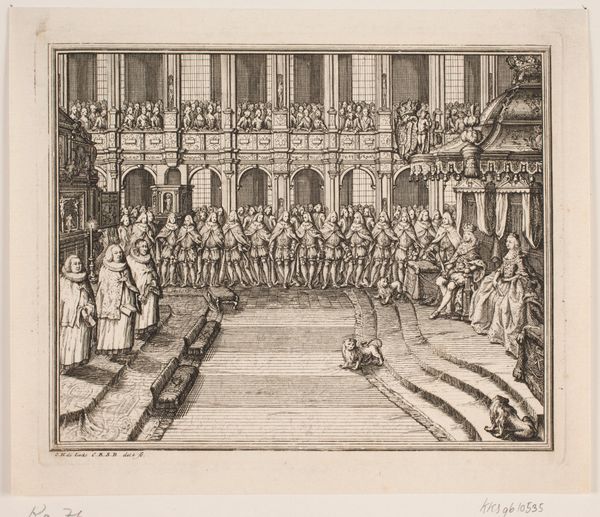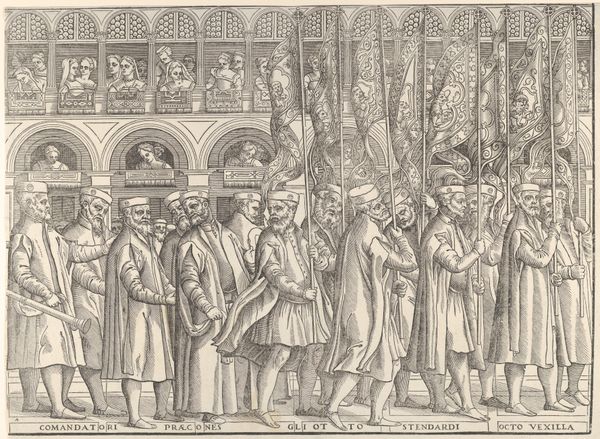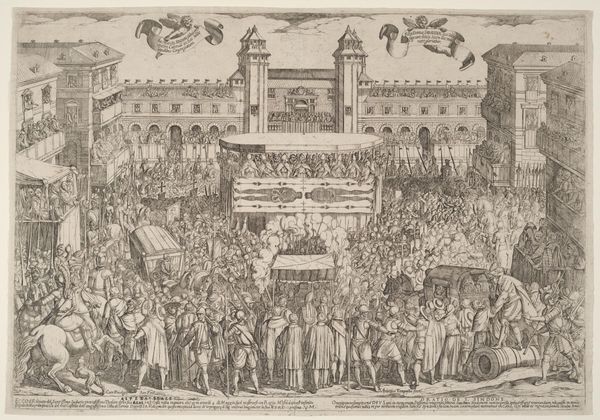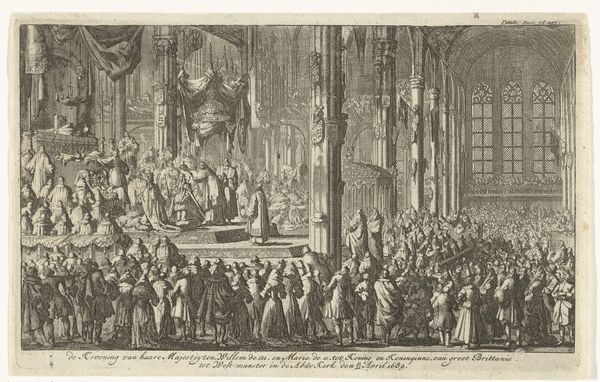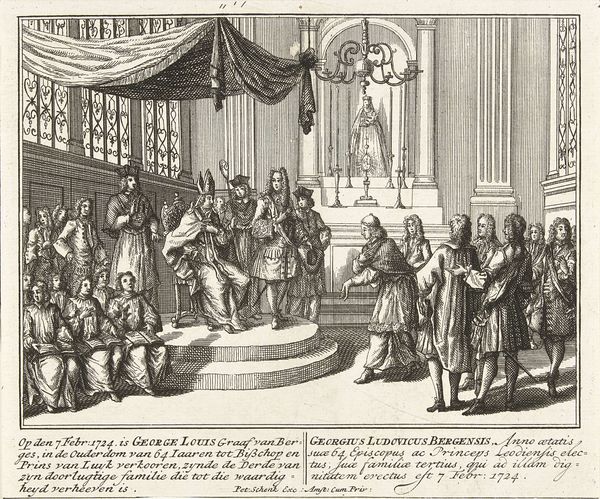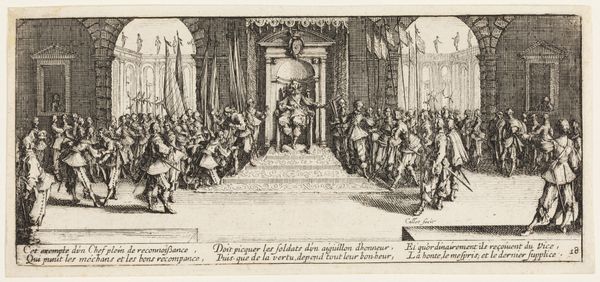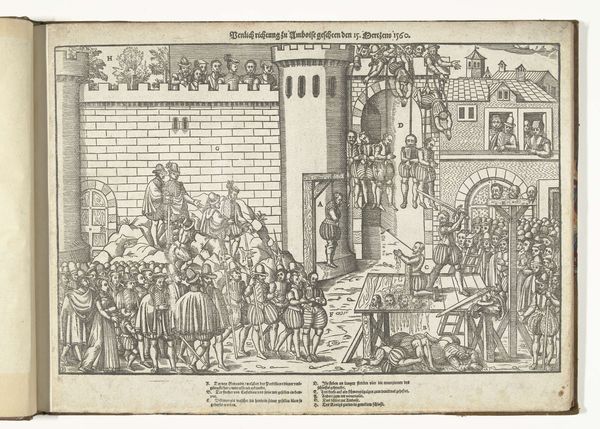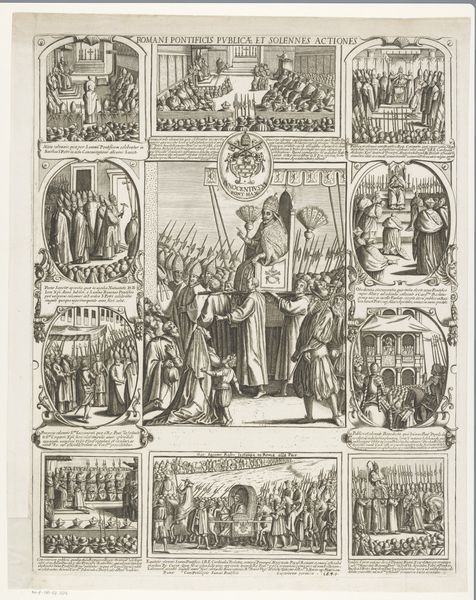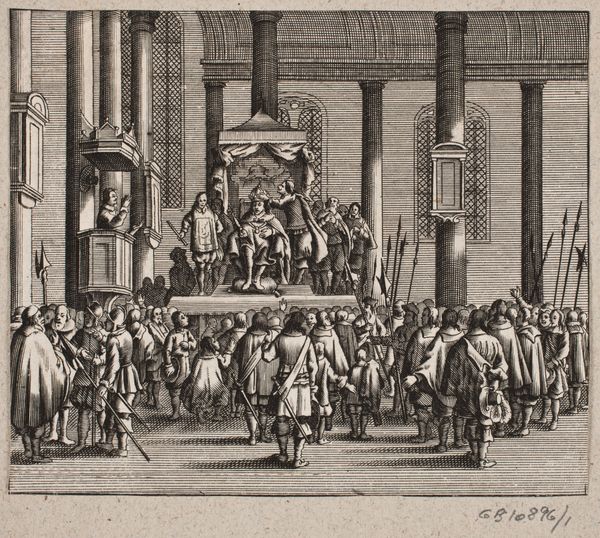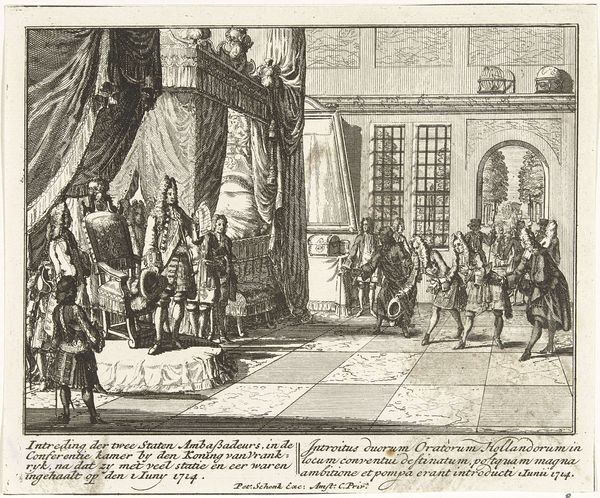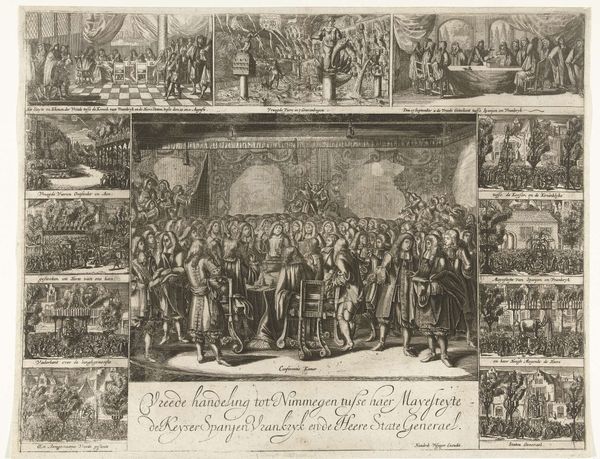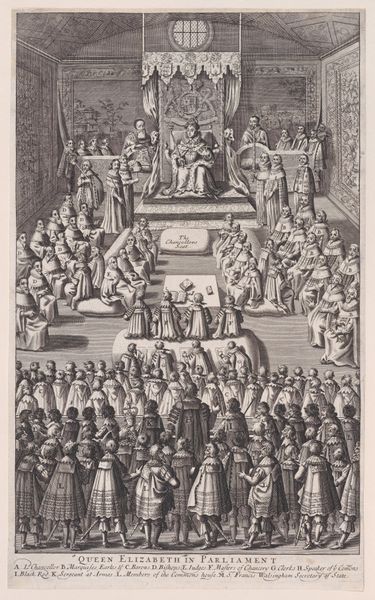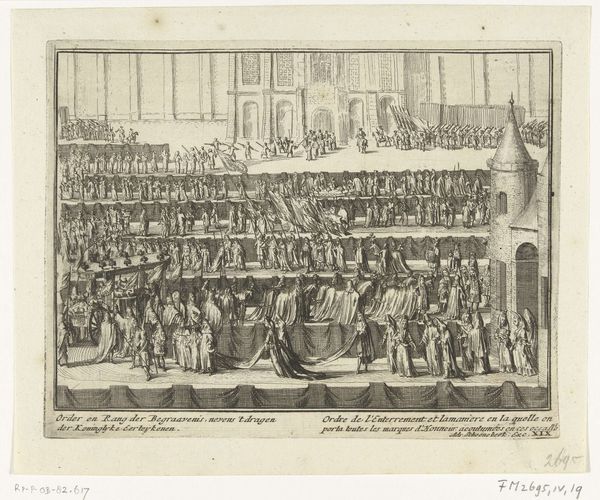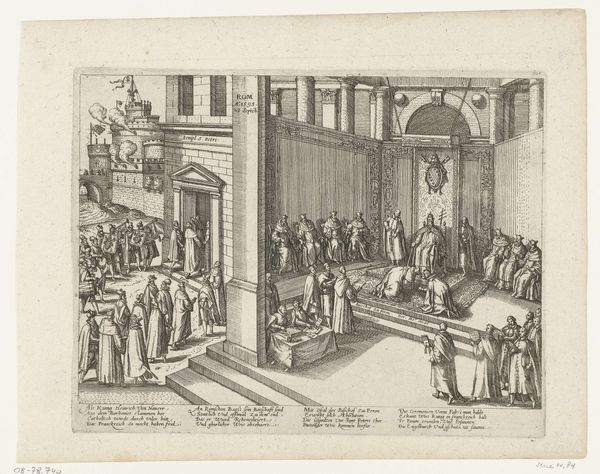
print, engraving
#
pen drawing
# print
#
mannerism
#
13_16th-century
#
history-painting
#
engraving
Dimensions: height 232 mm, width 333 mm
Copyright: Rijks Museum: Open Domain
This print, made in 1568 by Frans Hogenberg, depicts the execution of the Counts of Egmond and Horne. The medium is etching, a printmaking process using acid to corrode lines into a metal plate, which is then inked and pressed onto paper. The relatively low cost of etching, as compared to engraving, made it a popular technique for disseminating information quickly. Here, Hogenberg uses the linear precision of the etched line to document this pivotal moment in Dutch history. The sharp, unwavering lines convey a sense of stark realism, emphasizing the grim details of the execution. The etched lines create a sense of depth and texture, highlighting the somber mood of the scene. The use of printmaking allowed for broad distribution of this image, turning it into a powerful tool for political commentary and collective memory. By understanding the materials and processes behind this artwork, we gain insight into its function as both a historical document and a work of art.
Comments
No comments
Be the first to comment and join the conversation on the ultimate creative platform.
